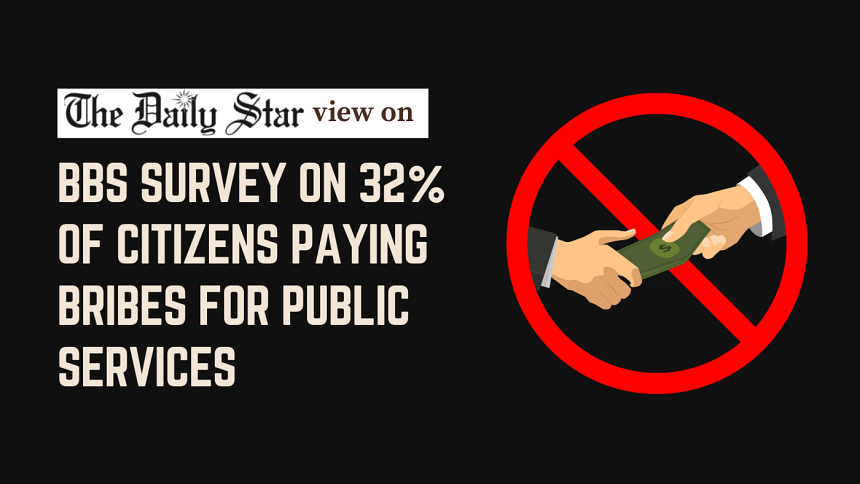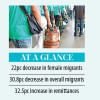Governments come and go, but bribery stays on

We are concerned to learn of the findings of the latest survey by Bangladesh Bureau of Statistics (BBS) that paints a troubling picture of public service delivery in the country. The survey period covered both the tail end of the now-ousted Awami League regime and the first few months of the interim government, thus requiring its findings to be read with nuance. But the fact that 31.67 percent of respondents, or nearly one in three, reported having to pay bribes for essential services is a stark reminder of how entrenched corruption remains. The massive sample size—with 84,807 respondents from 45,888 households interviewed—also makes the data a fair representation of the experience of ordinary citizens. Although by now we would have appreciated a survey exclusively focused on the interim period, what has emerged still makes a case for why we should worry.
For that, we just need to look at some of the details. For instance, according to the BBS data, the worst offender among public service agencies was the Bangladesh Road Transport Authority (BRTA), where 63.29 percent of citizens reported being forced to pay bribes, followed closely by law enforcement agencies (61.94 percent), the Department of Immigration and Passports (57.45 percent), and the Directorate of Registration (54.92 percent). These institutions have long been synonymous with corruption, and the latest data suggests that the situation has not improved significantly despite the change in government. Another sector with a notable incidence of corruption is education where, as noted by the planning adviser at the BBS ceremony, the bribery rate for transfers is very high.
These findings more or less align that of other reports on corruption in Bangladesh. We may recall a December 2024 assessment of the Transparency International Bangladesh (TIB)—based on six household surveys conducted between 2010 and 2023—that an estimated Tk 1.46 lakh crore was paid in bribes for services during the rule of Awami League. According to the most recent of those surveys, covering the period between May 2023 and April 2024, some 70.9 percent of respondents had collectively paid Tk 10,902 crore in bribes while seeking services. It is no surprise that the same institutions flagged by TIB as most corruption-prone have also been named by BBS. Clearly, things have changed little.
The level of access and affordability in public services may have improved of late, but the quality and timeliness of service delivery still leave much to be desired. Just over half of the BBS survey respondents have expressed satisfaction with how long services take to process. While the interim government has taken some notable steps in recent weeks, such as replacing the BRTA chairman and conducting anti-corruption raids at BRTA offices, these actions are not enough to curb corruption unless systemic reforms are undertaken to support full automation of services, elimination of middlemen, de-politicisation, and rigorous trials and punishment of corrupt officials. Corruption must be confronted not with token measures but with genuine political will and long-overdue institutional changes.


 For all latest news, follow The Daily Star's Google News channel.
For all latest news, follow The Daily Star's Google News channel. 










Comments